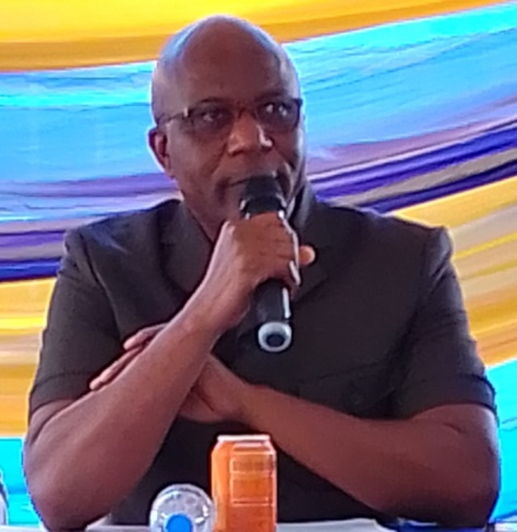By Mackie M. Jalloh
In Sierra Leone’s evolving social security landscape, one name stands out for steering change and setting new benchmarks: Mohamed Fouad Daboh, Director General of the National Social Security and Insurance Trust (NASSIT). Since assuming the helm of the institution, Daboh has transformed NASSIT from a bureaucratic system into a dynamic, forward-thinking entity committed to safeguarding the future of Sierra Leoneans.
NASSIT, established to provide social security benefits for workers and retirees, has often faced scrutiny in the past for inefficiencies, slow service delivery, and public mistrust. Today, that narrative is changing. Under Daboh’s stewardship, the Trust has witnessed unprecedented reforms that have enhanced operational efficiency, improved member services, and positioned the institution as a cornerstone of Sierra Leone’s social protection framework.
One of Daboh’s most significant achievements is his push toward digital transformation. Recognizing the need to eliminate bottlenecks and improve transparency, he introduced advanced IT systems that have streamlined processes for contributions, benefits claims, and member inquiries. These digital solutions have drastically reduced delays, allowing contributors to access their benefits faster than ever before.
“Efficiency is not just a goal; it is a responsibility,” Daboh stated during a recent stakeholder engagement session. “Every Sierra Leonean worker deserves timely access to their entitlements, and that is the standard we are setting.”
The implementation of digital platforms also means that employers can now submit contributions online, reducing the cumbersome paperwork that previously hindered compliance. This innovation has earned NASSIT commendation from both the public and private sectors, setting an example for other government institutions.
Beyond technology, Daboh has focused on the financial health of the Trust. By introducing rigorous compliance measures and expanding the contribution base, NASSIT has strengthened its revenue streams. Strategic investments in real estate, hospitality, and other sectors have further diversified income sources, ensuring the long-term sustainability of pension funds.
Industry analysts note that these measures have positioned NASSIT as one of the most stable social security institutions in the region, capable of meeting obligations even in challenging economic conditions.
A major pillar of Daboh’s vision is inclusivity. Historically, many Sierra Leonean workers, especially in the informal sector, were excluded from social security benefits. Under Daboh’s leadership, NASSIT has rolled out innovative programs aimed at integrating informal workers, traders, and self-employed professionals into the social protection system.
This expansion is not just a policy shift—it is a social justice imperative. By ensuring that market women, bike riders, and small-scale entrepreneurs can secure their future, NASSIT is aligning with global best practices for inclusive growth.
One of the most visible changes under Daboh is the transformation in customer service. Previously characterized by long queues and delays, NASSIT service centers have been rebranded with a customer-first approach. Staff have undergone intensive training in professionalism and client engagement, making the experience of dealing with NASSIT more efficient and pleasant for contributors.
Beneficiaries now report faster turnaround times for claims processing, with some describing the change as “a new era for social security in Sierra Leone.”
In an environment where public confidence in state institutions can be fragile, Daboh has prioritized transparency. Regular public briefings, stakeholder consultations, and financial disclosures have become a hallmark of his administration. This openness has helped rebuild trust in NASSIT, reassuring contributors that their funds are secure and well-managed.
Beyond the structural reforms, what truly defines Daboh’s leadership is his accessibility and willingness to engage with the public. He has personally visited workplaces, markets, and provincial towns to explain the benefits of social security and listen to the concerns of contributors. These outreach programs have humanized NASSIT, making it not just a government agency but a partner in people’s lives.
As Daboh consolidates these achievements, his roadmap for the future remains ambitious. Plans are underway to introduce new benefit packages tailored to modern socio-economic realities, including health-related benefits and support schemes for vulnerable groups.
He envisions a NASSIT that is not only efficient but also innovative, resilient, and fully aligned with global social protection standards. “Our goal is simple,” he remarked at a recent policy dialogue. “To create a system where every Sierra Leonean worker feels secure about their future.”
In an era where public institutions often struggle with inefficiency, NASSIT under Fouad Daboh has become a beacon of progress. His leadership demonstrates that with vision, accountability, and innovation, even the most complex public systems can deliver real value to citizens.
Today, NASSIT is not just a custodian of pension funds—it is a driver of socio-economic stability and a testament to what transformational leadership can achieve. As Sierra Leone strives for inclusive growth and sustainable development, the role of NASSIT, under Daboh’s guidance, will remain indispensable.



